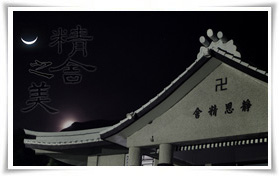| < 前一個 | 下一個 > |
|---|
![作者(右)在「東聖谷更生人資源中心」的慈濟攤位,介紹監獄靜思語讀書會。[攝影者:Colin Legerton]](http://tcit.tzuchi.net/community/ASA00/2/E04F30FD540D08A948257EB700644AB6/s20159110013756.jpg) 美國慈濟志工推動監獄關懷方案,除了為失去自由的受刑人打開心靈成長的窗口,也讓受刑人的家人感受到這一分清淨大愛。Maria Barcenas是受刑人家屬,她也開始
投入志工行列,寫下了她的參與心得,相信慈濟人的行動,真正起到了淨化人心的作用。
美國慈濟志工推動監獄關懷方案,除了為失去自由的受刑人打開心靈成長的窗口,也讓受刑人的家人感受到這一分清淨大愛。Maria Barcenas是受刑人家屬,她也開始
投入志工行列,寫下了她的參與心得,相信慈濟人的行動,真正起到了淨化人心的作用。
◎關懷或漠視 受刑人家屬兩難
寫這篇文章時,我正在拉斯維加斯的拘留中心,等著接受志工培訓。在這裡寫這篇文章,再適合不過;拘留中心的牆壁冰冷厚重,幾乎沒有家具,沒有花的相片,沒有鳥的相片,沒有 「希望」的字眼。
我的生命中,記憶了很多數字,但「14750813」是最痛苦的記憶;這是我堂兄在聖地牙哥拘留中心的囚犯編號。
一年前,他失去了自由,目前仍在等待判決。我可以選擇轉身不顧,假裝這不是我應該關心的問題,不過,我是他的堂妹,認識他已四十五年,他父親是我伯父。十五年前在墨西哥, 堂兄曾在一次暴力事件中救了父親一命,所以我沒有選擇忘記他,繼續過自己的日子,而選擇和他的妹妹一起支持他,讓他能堅強走過這段痛苦的旅程。
我很榮幸能參與慈濟的監獄關懷方案,我相信在慈濟學習的人文觀,可幫助那些失去自由、感到絕望的兄弟姊妹。證嚴法師的教誨,讓我在「慈悲和大愛」這簡單卻深奧的觀念中,找 到快樂,過著充實的生活。
我對監獄關懷方案有信心,因為如果有人關心,願意與受刑人交談,就能帶來改變;如果有人探訪他們,就能帶來改變;如果有人寫信給他們,就能帶來改變。不幸的是,許多受刑人 在這世上是孤單的,即使有家人,也遭到被家人遺棄的二度懲罰——他們的家人很可能是出於羞恥或無知,畢竟讓人知道有個家庭成員被關在監獄,並不是體面的事;而且要付諸關 心,電話費、衛浴用品、禮物、明信片、探訪、出庭、停車費、法律諮詢等等,又所費不貲。
◎精進與慈悲 扛淨化人心責任
身為慈濟志工,以大愛化絕望為希望,是我們的責任。我們觸及囚犯煩惱重重的心靈,撫慰他們的痛苦。我們通過個別通信,告訴他們慈濟是什麼樣的團體,邀請他們加入「慈悲的行 列」。我們也建議他們,如果力所能及,可捐款培養慈悲心。我們邀請他們透過慈濟季刊(Tzu Chi USA Journal),見證災難發生時,全球成千上萬的慈濟志工 是如何積極投入。我們贈送他們靜思語,分享證嚴法師的智慧,邀請他們在日常生活中實踐這些教法,成就正直的生命。
探訪堂兄時,我唱慈濟的手語歌,也和他討論從慈濟書刊學習的佛法觀念。從他的反應,我很確定他了解這些教法。他也把靜思語和慈濟季刊與其他犯人分享,大家都很感恩有這麼棒 的資源陪伴他們、帶給他們極大的喜悅。
身為慈濟志工,我們的足跡是慈悲濟世;我們有責任積極投入監獄關懷方案、有責任到其他人不願意去的地方。我們相信,每個人的心都有很大的進步可能;只要精進、慈悲對己和對 人、遵循正道,沒有人是無可救藥的。
Turning Despair into Hope Maria Barcenas
I am writing this essay at a Las Vegas detention facility, waiting for my volunteer training to get started. I couldn’t find a more appropriate place to write: institutional, cold, thick walls with minimal furniture. Nowhere a picture of a flower. Nowhere an image of a bird. Nowhere a phrase of hope. I have memorized many numbers in my life. Never has one been as painful as my cousin’s inmate identification number at a San Diego detention facility. He lost his freedom one year ago; his trial is pending. I could have chosen to turn the other way and pretend it was not an issue I should be concerned about. But I am his cousin; I have known him for forty-five years. He saved my father’s life fifteen years ago in Mexico. To go on with my life and forget about my cousin was not my choice. Instead, I chose to stand by him, along with his sister, to make him strong throughout this traumatic journey. I am honored to be involved in Tzu Chi’s prison outreach project because I am convinced that the humanistic concepts I have learned within this organization can help our brothers and sisters who have lost their freedom and feel in despair. Dharma Master Cheng Yen’s teachings have helped me live a fulfilling life by finding joy in simple yet profound concepts: kindness, selfless love, and compassion. I believe in this project because it makes a difference to inmates when someone cares enough to talk to them. It makes a difference when someone visits them. It makes a difference when someone writes to them. Unfortunately, many inmates are alone in this world. Others are twice punished by their family’s abandonment, most likely because of stigma or ignorance. Sharing that a family member is imprisoned is not glamourous. Choosing to get involved is costly—there are phone calls, toiletries, gift packs, postcards, visitations, court appearances, parking, legal consultations, and on and on. It is our role as Tzu Chi volunteers to change despair into hope with Great Love. We reach the afflicted hearts of the inmates and soothe their suffering. Through personal correspondence we inform them of what Tzu Chi Foundation stands for and we invite them to get involved in our “army of compassion.” By providing a subscription to the quarterly Tzu Chi USA Journal, we invite inmates to witness the actions of thousands of Tzu Chi volunteers engaged all around the world, wherever disaster strikes. By sending Jing Si Aphorisms, we share Dharma Master’s wisdom and invite inmates to practice teachings on a daily basis to achieve an honorable and righteous life. When I visit my cousin, I sing Tzu Chi songs to him along with sign language, and we discuss Buddhist concepts I have learned from Tzu Chi’s literature. His reflections assure me that he understands the teachings. He and other inmates with whom he shares the aphorisms and the Journal appreciate and enjoy having these great resources to keep them company and give them great joy. As Tzu Chi volunteers, our footprint is compassionate relief. We are called to action in prison outreach. We are called to be where others would rather not go. We believe that every heart has a great potential to improve. We don’t think of anyone as a lost cause. What is important is practicing diligence, showing compassion to ourselves and others, and following the right path. 摘自《美國慈濟世界》208期








